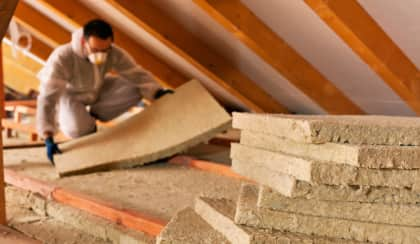Canberran rental properties must be insulated from 2023

The ACT government has revealed it will be introducing the new standards from April 2023 — with a phase-in period set to take effect to November 2026.
According to the territory government, the new regulations will require insulation installations or upgrades for rental homes that currently have no ceiling insulation or existing insulation rated less than R2.
More than six in 10 rental homes across Canberra and the territory are reportedly already compliant with the proposed standard, with the government aiming to ensure that the new minimum standard will boost the quality of homes across the private and public housing domains.
According to Chief Minister and Minister for Climate Action Andrew Barr, “putting minimum energy-efficiency standards in place for rental properties will improve the wellbeing of Canberra renters as well as help reduce their cost of living”.
Minister for Water, Energy and Emissions Reduction Shane Rattenbury added that “everyone deserves a comfortable, safe, and healthy home, and the new minimum energy-efficiency standard for ceiling insulation will help to achieve this”.
He conceded that many renters in the ACT live in housing that is not well insulated, and this impacts their health, comfort, and happiness at home.
“It’s unfair that those with the least capacity to pay often live in properties that are the most expensive to heat and cool. Up to 35 per cent of heat is lost through the ceiling over the colder months in an uninsulated Canberra house,” he outlined.
During the phase-in period for the reform, which is set to conclude on 30 November 2026, rental providers will be required to meet the new standard within nine months of a new lease being signed for the property.
Then, from 1 December 2026, properties will need to comply, or be in the process of complying, regardless of whether a new lease has been signed.
From that date, new properties entering the rental market will also have three months to comply with the standard.
Another requirement of the reform will see it become mandatory for rental providers to include details on whether their property is compliant with the minimum standard in all rental advertisements and in new residential tenancy agreements.
To support rental providers in ensuring their rental properties are up to code, the government flagged that its Sustainable Household Scheme would be expanded to make insulation an eligible product.
This means eligible landlords will be able to access zero-interest loans of up to $15,000 to cover the costs of installing new insulation.
Mr Barr acknowledged that the changes “can be costly” — warranting the inclusion of insulation on the scheme — but he also stressed that “getting landlords on board is another big step towards ensuring all Canberrans benefit from a zero-emissions future for the ACT”.
Mr Rattenbury also revealed that in addition to meeting the standard in public housing properties, the ACT government would be investing in a number of public housing energy-efficiency improvements, such as replacing gas appliances (hot water and heating and cooling systems) with energy-efficient electric alternatives that are cheaper to run. These have the added bonus of supporting the ACT’s transition away from gas by 2045.
The minister stressed that such minimum standards “are essential for assisting renters with their quality of life and energy costs, and the phase-in period and no-interest loans will assist rental providers to satisfy the new requirements in a balanced way”.
“Insulation is the most effective and efficient way to quickly improve energy efficiency in rental properties,” he said.

